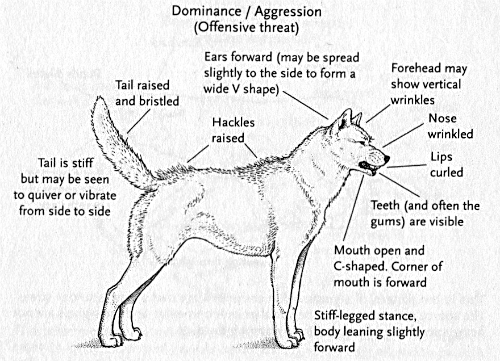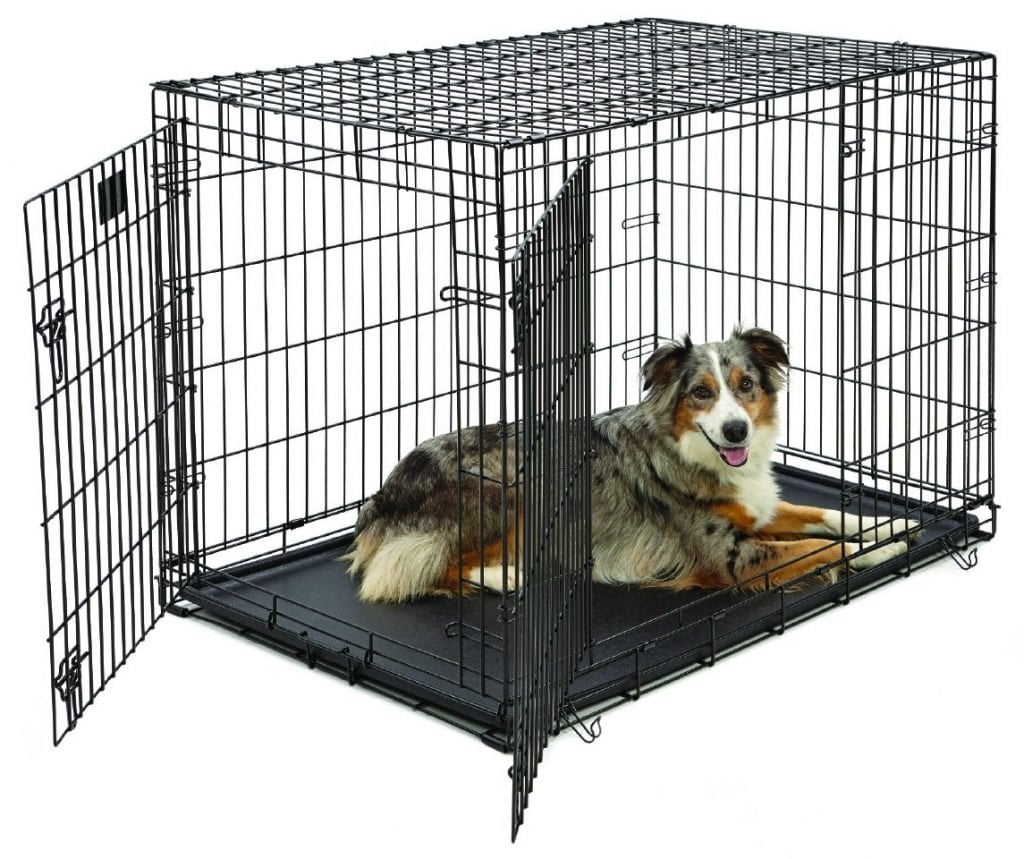Did you know your dog can tell you, in her own way, when she’s feeling stressed? As a canine behaviorist, part of my job is learning to spot the signs of a nervous, stressed, or otherwise unhappy dog, because knowing these signals helps prevent unwanted behavior. Sometimes, the indicators of stress are easily identified. Other times, the ways that dogs inform us stress are quite surprising.
The most clear indication of stress is aggression. Outside of aggression, your dog’s general body language, health, and behavior can give you clues about his stress levels.
Signs of Stress in Dogs
- Aggression
Aggression toward people or other pets is often a clear sign of stress. If you notice your dog becoming easily agitated, a veterinarian should often be the first step to eliminate any underlying medical problems. Once medical problems are ruled out, you can then contact a Canine Behaviorist who will help you identify the cause of the stress and develop a behavior modification plan if necessary.
- Avoidance
If your dog is avoiding people or other pets and it is unlike him to do so, this could indicate his stress toward a particular stimulus. Sometimes, just as we do, dogs do need some time to themselves to relax but if this becomes common the behavior should be investigated.
- Loss of appetite
It’s particularly upsetting when we notice our dogs not eating at all. Maybe you haven’t noticed a decrease in appetite, but you have noticed significant weight loss. Stress could definitely be a factor in this equation.
- Gastrointestinal issues
Diarrhea and constipation, although more often related to some type of allergy or disease, can be connected to stress levels. If your dog has been constipated or had diarrhea for over 24 hours, then it’s time to contact the veterinarian. If the vet clears your dog of any medical issues, a Canine Behaviorist may be able to help with anxiety issues.
If your dog is stressed about a particular situation, the signs often begin as ‘gentle’ signs, then progress over time.
- Licking lips
It’s important to notice the beginning signs of stress, prior to the behavior escalating. For instance, early on in a stressful situation, your dog may begin licking his lips, which can indicate stress, nausea, or anxiety.
- Exaggerated yawning
Dogs yawn for many different reasons, but stress can be one of them, especially if the yawn is ongoing and extra-wide, or if it seems unusual. The main idea in regard to body language is to look for any behavior out of character. If your dog isn’t acting like himself, this is a clear indication of stress.
- Excessive sleeping
Did you know excessive sleeping can be a sign of stress? If your dog seems overwhelmingly tired or weak, you should contact your veterinarian.
How Can I Help My Stressed Dog?
The most critical part of helping your stressed dog is gaining a full and complete understanding of how he acts when he is calm and content. Understanding how he acts in his ‘normal’ state will help you recognize uncharacteristic behavior.
- Stay calm
Keeping your own stress level down is extremely important to preventing or eliminating stress in your dog. Your dog is able to sense your stress levels.
Exercising with your dog on a regular basis assists with preventing and eliminating stress not only in your dog, but in yourself! Going for a walk or playing fetch are highly recommended.
- ‘Safe’ areas
Every dog should have an area in the home where she’s able to go when feeling stressed or anxious. Most often, this is a crate of some type. Believe it or not, crates significantly decrease stress levels as they can help your dog feel completely safe and comfortable.
For this to work, it’s absolutely critical your dog not see his crate as an area for punishment. A dog should never be punished and placed in his crate. Staying in your dog’s line of sight while he’s in his safe area also helps, as he’ll be comforted by your presence.
The Bottom Line
You know your dog best. If you sense that something is off, you’re probably right to seek intervention. In general, helping a stressed dog isn’t unlike helping a stressed human. Avoid overstimulating environments, provide plenty of healthy food, exercise, and love, and take time to rest. You’ll be sure to reduce your dog’s stress levels—along with your own.





